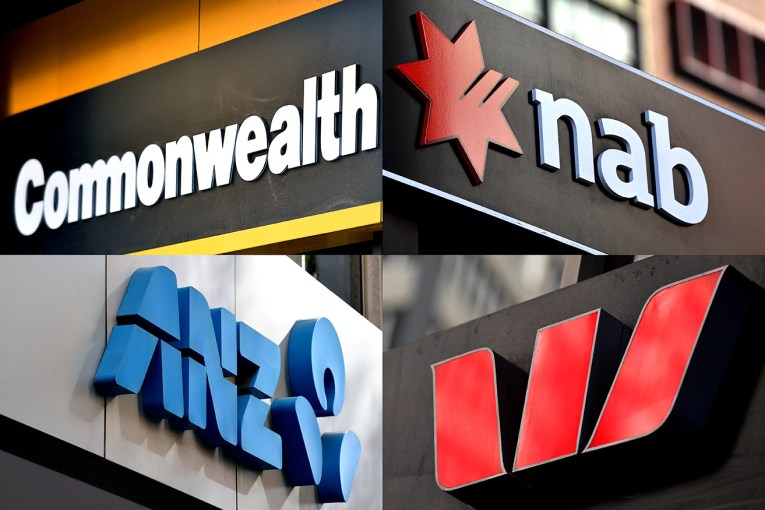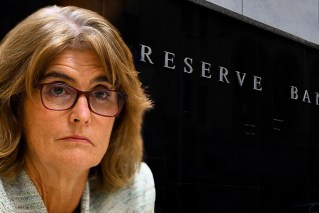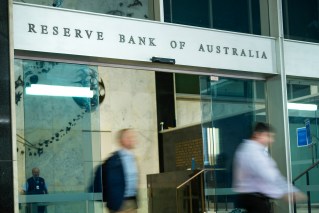Choice urges banks to slash interest rates on credit cards


The major banks are being urged to help customers behind on credit card repayments. Photo: Getty
Consumer group Choice has called on Australia’s banks to cap credit card interest rates at 10 per cent and forgive long-running debt as Australians face financial hardship because of the coronavirus.
Choice CEO Alan Kirkland welcomed the banks’ early support packages for struggling mortgage holders, but said they should “go further” to assist vulnerable credit card customers amid historically low interest rates.
“[The banks’] response to people with credit cards and personal loans has been piecemeal at best … [and they] should offer to pause all debts for people in hardship with no exceptions,” Mr Kirkland said.
“Right now only two credit card products offered by the big four banks have an interest rate below 10 per cent.
“This is outrageous when banks are reaping the benefits of a 0.25 per cent cash rate.”
Commonwealth Bank and Westpac (9.9 per cent) are the only big four banks to offer credit cards with interest below 10 per cent, with ANZ (12.49 per cent) and NAB (12.99 per cent from April 27) trailing behind.
10 per cent caps on credit cards are ‘reasonable’
University of Technology Sydney finance professor Harry Scheule said the consumer group’s demand for a 10 per cent cap is not only reasonable, but should have been suggested immediately after the banking royal commission.
“I don’t think these demands are specific to COVID-19. I think they could’ve made some of these calls a year ago,” Professor Scheule told The New Daily.
[Choice’s] proposals help to effectively limit the exposure of young people and low-income earners, who are the most vulnerable in society to debt and credit income squeezes or excessive payments, but especially in times of economic crisis.’’
The banks argue that credit cards carry higher interest rates because they are a high-risk, unsecured lending product – unlike a mortgage that offers a home as collateral.
In a statement provided to The New Daily, Australian Banking Association CEO Anna Bligh said the banks had “worked tirelessly” to assist individuals and businesses in financial duress as a result of the pandemic.
More than half a million customers have sought out or been granted assistance under new hardship measures that include six-month mortgage deferrals and restructured loans.
“As we have said from the beginning, any customer who is in hardship as a result of COVID-19 should contact their bank as soon as possible to access support,” Ms Bligh said.
During his speech on Tuesday afternoon, Reserve Bank governor Philip Lowe also praised the banks “for helping the country through this difficult period”.
But he said banks were yet to pass on to consumers the full benefits of the RBA’s funding assistance, suggesting more interest rate cuts to home and business loans were on the way.
Banks may require other measures to meet rising debt
Although the banks cite frequent flyer points and travel insurance as benefits, Mr Kirkland said this doesn’t excuse their stubbornness to provide relief for credit card customers.
“Banks shouldn’t forget the lessons learned from the banking royal commission. They need to go further to look after their customers in these difficult times,” Mr Kirkland said.
UTS’s Professor Scheule said although six-month credit card loan moratoriums are not a foreign concept, they would require rigorous change to match the economic impact of the coronavirus.
“If people have a hardship and can’t pay, and their [paused loan] accrues interest, it’s highly unlikely that [customers] will be able to pay back that interest after six months,” Professor Scheule said.
Tweet from @choiceaustralia
“When credit card rates are reaching up to 20 per cent, lenders are unable to repay … so banks may have to start thinking about things like debt forgiveness.”
Choice also called on the major banks to pause all credit card debts for customers in serious financial stress for six months, and waive long-term debt, citing a four-year ‘Bulk Debt Project’ that helped wipe $30 million in debt off the market early last decade.








